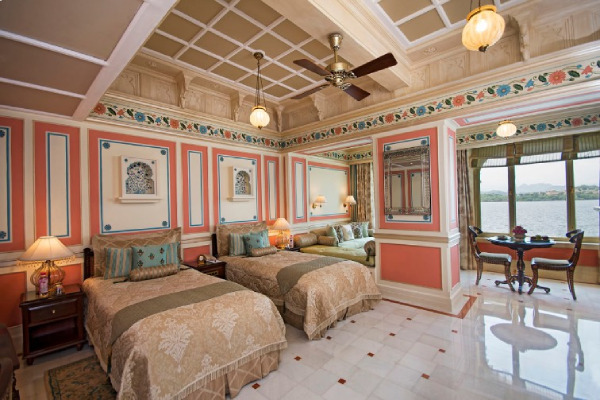Setting record financial results for Q4 and FY 2022-23, the Indian Hotels Co. Ltd. (IHCL) saw its FY23 revenue jump 85% YOY to Rs. 5,949 crore ($740 million), driven by strong performance.
For FY23, the company’s PAT increased to Rs. 1,003 crores ($122.71 million), recovering from a loss of Rs. 264.9 crore ($32.41 million), which offset the losses incurred during the pandemic. EBITDA soared 247% to stand at Rs 1,943 crore ($237.72 million)
Net profit in the fourth quarter ended March 2023 skyrocketed 343% to Rs. 328.97 crore ($40.25 million).
Mumbai-based IHCL, India’s largest hospitality company, said its revenue in the quarter rose 73% to Rs. 1,655 crore ($203.71 million), while EBITDA surged by 134% to Rs. 565 crore ($69.12 million).
This was achieved by maximizing the operating leverage of their owned/leased properties and margin-enhancing fee-based business. The company continues to report a healthy consolidated free cash flow of Rs. 1,017 crore ($124.43 million) in FY2022-23 and remains net cash positive.

ACCOMPLISHMENTS, HIGH DEMAND
Puneet Chhatwal, managing director and CEO of IHCL, attributed the record performance to several major accomplishments, including the “highest ever full-year consolidated revenue, an all-time high and industry-leading EBITDA margin and PAT of over Rs.1,000 crore ($122 million), a historic first for the company.”
Four consecutive quarters of sustained high demand, additionally boosted by IHCL demonstrating leadership in RevPAR in all its brands across its key markets helped drive the stellar performance, Chhatwal added.
IHCL crossed 260 hotels in its portfolio, including 36 signings at a rate of three hotels per month and 16 openings or a new hotel every three weeks during the year. The company hotels are present in 31 states and union territories across India.
The new signings include four hotels each under its Taj and SeleQtions brands, three Vivanta and five Ginger branded hotels.
In line with its efforts to restructure its portfolio, the company also managed to achieve an “optimal 50:50 mix” between its owned/leased and managed hotels.
TAJ’S HOTEL MILESTONE
Taj, IHCL’s iconic luxury, full-service flagship brand, achieved a landmark of 100 hotels and has more than doubled its room inventory in the past five years. Significant signings under the brand include Taj hotels in Dhaka, Bangladesh; Riyadh, Saudi Arabia; two Taj resorts at Lakshadweep, India; and a hotel each in the Indian cities of Chennai, Cochin, Bangalore, Raipur and Gandhinagar.
Taj also opened three new hotels in the Indian cities of Kolkata, Wayanad and Jaipur, along with an addition to its palace portfolio in Jaipur.

REIMAGINED NEW BUSINESSES
IHCL’s midscale brand, Ginger, reported a turnaround in FY2022-23, led by 50% in the lean luxe portfolio. The brand achieved a revenue of Rs. 307 crore ($37.56 million), an EBITDA margin of 37.4% and a PVT of Rs. 48 crore ($5.87 million).
ama Stays & Trails, a collection of heritage guest houses, bungalows and villas across India, registered a 42% growth in the portfolio this fiscal and now has 114 bungalows in more than 50 locations.
TajSATS, IHCL’s airline catering business, captured a market share of 58% in FY 2022-23, with a revenue of Rs. 641 crore ($78.2 million) a 53% growth over pre-pandemic figures. EBITDA margin stood at 19.7% and a PBT of Rs. 107 crore ($13 million).
Qmin, IHCL’s gourmet culinary and food delivery platform, has now expanded to 34 outlets across 24 cities.
SUSTAINABLE PRACTICES
Under the company’s ESG framework, IHCL’s heritage, flagship hotel — Taj Mahal Palace in Mumbai — turned 100% green, 310 EV charging stations were installed in 129 locations across India, 32.5% renewable energy and 42% recycled water was used in operating hotels and 20 hotels were equipped with bottling plants to eliminate the use of single-use plastic bottles. Additionally, 16 skilling centers were opened in India.
